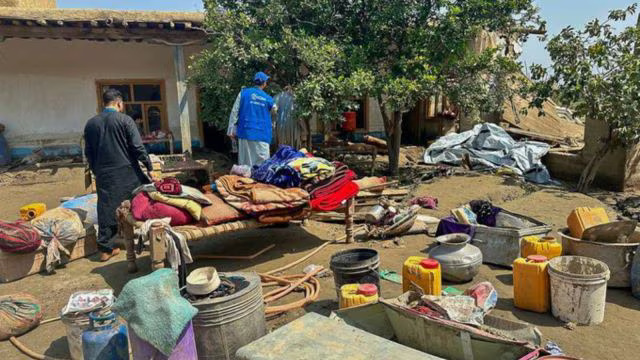Afghanistan reels as quake kills over 800, UN rushes aid, India pledges support
By | International | 01-Sep-2025 16:42:44

News Story
A powerful 6.0-magnitude earthquake tore through eastern Afghanistan late September 1, killing at least 800 people and leaving more than 2,500 injured, according to Taliban government officials.
Entire communities in Nangarhar and Kunar
provinces were reduced to rubble as the shallow quake, striking at a depth of
just 8 kilometres, unleashed devastation across remote mountain districts.
The US Geological Survey reported that the
tremor struck at 11:47 pm local time, with its epicentre 27 kilometres
northeast of Jalalabad. Kunar’s Nur Gul, Soki, Watpur, Manogi and Chapadare
districts were among the worst hit, with hundreds of homes damaged or
destroyed.
UN on ground, rescue hampered
The United Nations said its teams are already
delivering emergency supplies and life-saving support, though relief efforts
face severe challenges due to the remoteness of affected areas and limited telecommunications.
“Our thoughts are with the affected communities,” the UN stated, as
Secretary-General António Guterres extended “full solidarity with the people of
Afghanistan.”
India, Iran express solidarity
Prime Minister Narendra Modi expressed
condolences on X, pledging that India stands “ready to provide all possible
humanitarian aid and relief.” External Affairs Minister S. Jaishankar added
that New Delhi would extend support “in this hour of need.” Iran’s Foreign
Minister Abbas Araghchi also announced readiness to dispatch relief and medical
teams, calling the quake a “great tragedy.”
Concerns over women’s treatment
Amid the mounting humanitarian crisis, aid
agencies have raised alarm that Afghan women may face delays in treatment. In
Kunar, deeply conservative social norms may prevent families from seeking
hospital care for women until daylight, echoing troubling patterns observed
after the 2022 Paktika quake. With no female rescuers on the ground, relief
groups warn that women and children risk being disproportionately affected.
As the death toll climbs and survivors sift through the wreckage of their homes, Afghanistan faces yet another test of resilience—this time against nature’s fury.